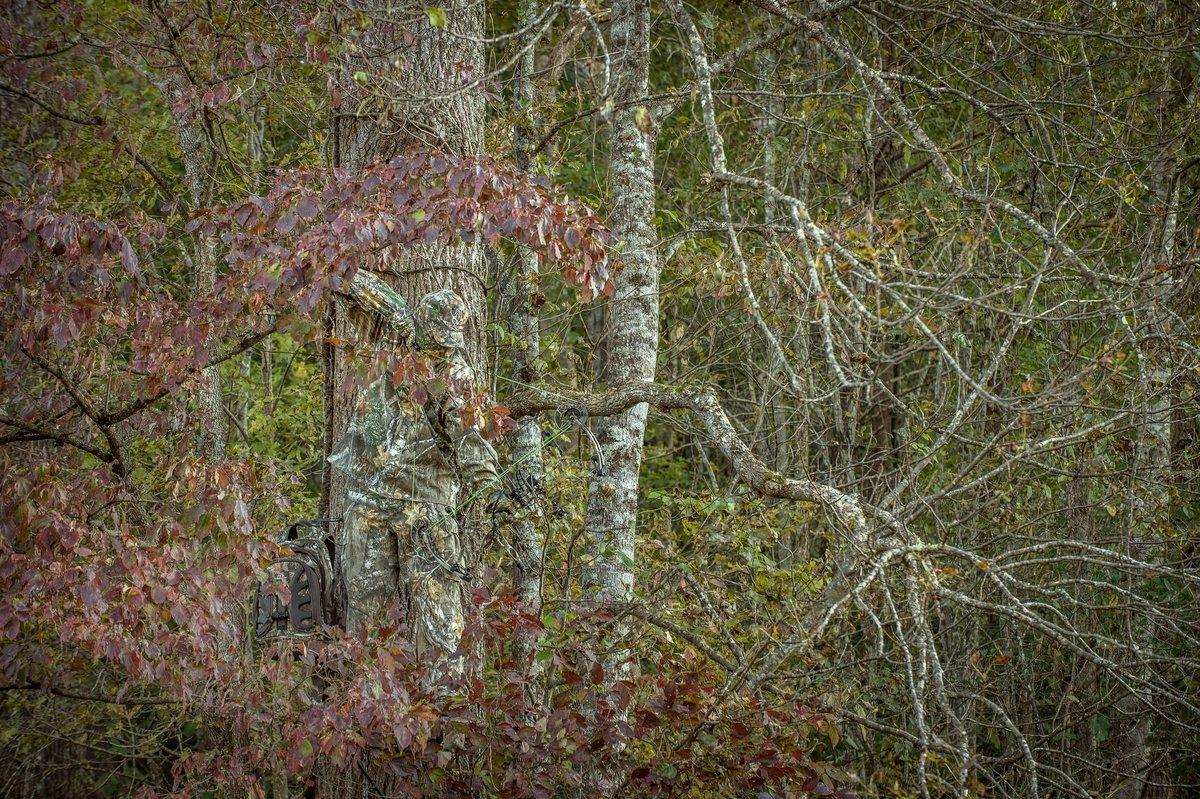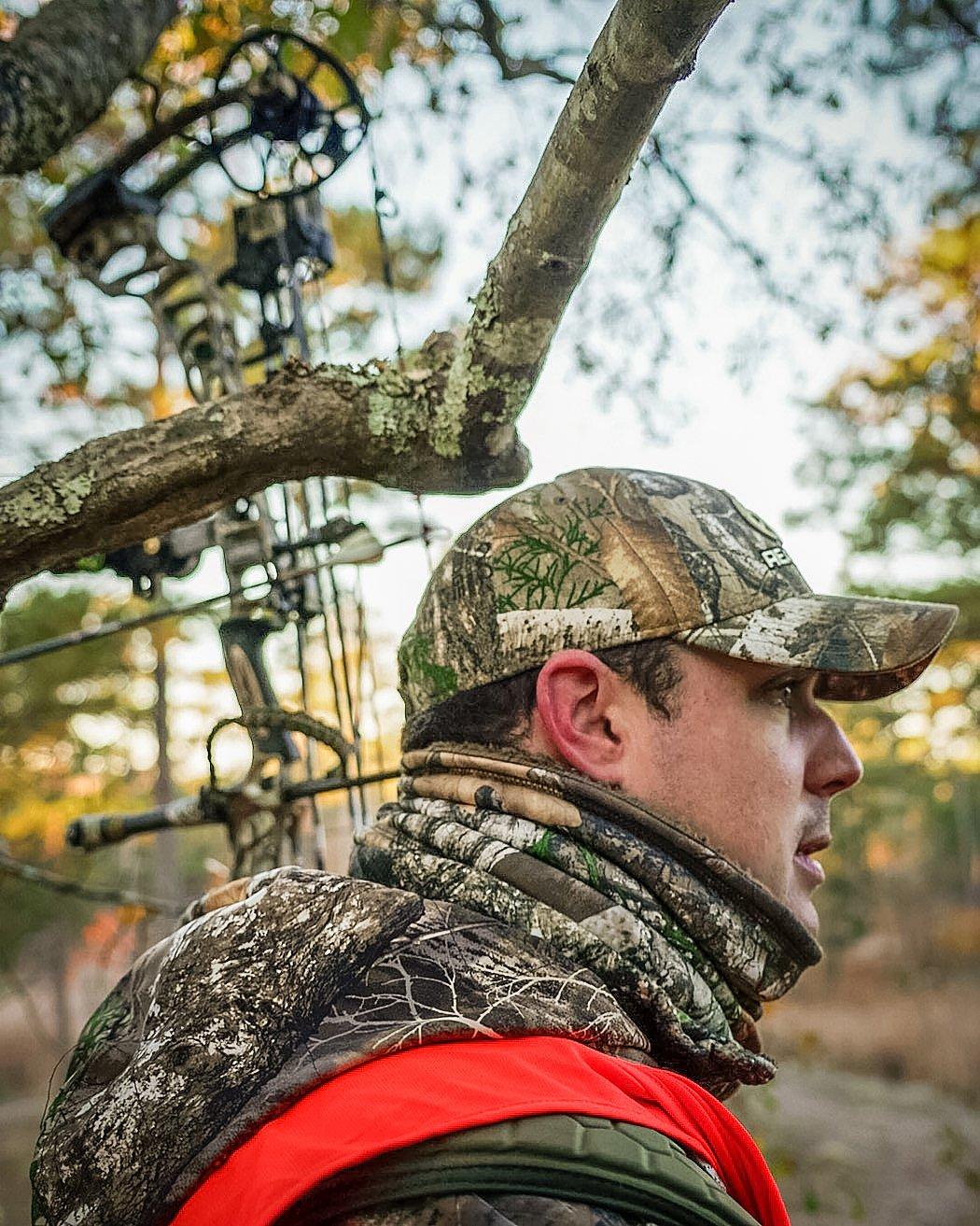Patience, persistence, optimism and more can make you a better person — and a more successful hunter, too
Virtues are instilled in us at an early age, but perfecting them takes a lifetime. Just as being virtuous is an important part of our humanity, it's also important to who we are as deer hunters. Here are 10 virtues that directly impact your deer hunting success and enjoyment.
The only non-virtuous trait all good deer hunters express? Concealment. And Realtree EDGE, Timber, MAX-1 XT and MAX-5 Camo have you covered in that department.
1. Awareness
A good deer hunter stays alert and aware. Not paying attention leads to unfilled deer tags. Know what's happening around you. Be perceptive of your surroundings.
How It Applies: Hear that tending grunt? See that tail flicker? Or were you more worried about your phone? Be hyper-aware, and pay attention to every detail. You checked that trail camera and flipped through several daylight-appearance images of your target buck. But did you analyze the direction of travel? Where was he coming from or headed to? This provides clues on preferred bedding areas and food sources. Did you check the wind direction at the time of the photo capture? Attentiveness makes the difference.
2. Decisiveness
Knowing when to act — and when to wait — is a definite attribute. Being unsure or unconfident limits success. Understand the situation, and know how and when to react. Know when to let the bow string loose on that new Mathews Vertix. (And when not to.) Making decisions quickly and effectively is an important step for achieving goals.
How It Applies: A giant buck worked within range, but you didn't launch an arrow. Instead, you passed on a good shot opportunity in hopes of a great one, but those generally never come. Taking the first ethical shot you can make is being decisive. And decisive hunters fill more tags.
3. Determination
Most deer hunters fail to tag a buck on the first try, and many fail the first season. But determined outdoorsmen keep hunting. Determination and persistence are integral to most other virtues on this list.
How It Applies: Hunting involves a lot of failures. These occur even more frequently for newer hunters. It's easy to give up, but don't. Keep failing and continue learning. Pursue improvement.
4. Humility
Humility directly affects both your success and how other hunters view you. Be kind. Keep humility at the forefront.
How It Applies: Finally put that big deer on the wall? Better not let it go to your head. Lack of humility clouds your judgment and inhibits the ability to see the full picture in hunting situations. It can even provide a false sense of confidence in a bad tactical choice or decision. Putting oneself on a pedestal often discourages personal growth, too, which diminishes the ability — and will — to learn.
5. Optimism
Hope. That's the underlying message of optimism. Deer hunters must have hope that something good is about to happen. As someone who struggles with pessimism, being optimistic is a day-to-day battle, and failing only makes it tougher. But good whitetail hunters learn to overcome.
How It Applies: Allowing pessimism to creep into one's psyche can be crippling. Positive thoughts lead to positive results. It might sound hokey, but my best hunts almost always come on days when I'm being optimistic.
6. Patience
Planning and preparing for a hunt without patience is pointless. Everything won't happen as you envision it will. Have the capacity to not only tolerate unexpected challenges but also to react in a positive way: with patience.
How It Applies: Patience may be the most important virtue of a good hunter. You need the patience to wait until conditions are right for you to hunt your favorite spot. You need the patience to stay put when a deer is slowly working to within range, rather than embarking on a low-odds stalk.
7. Persistence
It's tempting to confuse this with determination, but don't. Determination is more about resolve. Persistence is about staying the course, like sticking to a well-crafted plan, even if it doesn't produce results as quickly as you might hope.
How It Applies: I needed this one for the buck I tagged last season. I had planned for a full year on how to get a shot at him. Then, right before the 2018 opener, everything fell apart. (Or so I thought.) Trail cameras led me to believe the buck changed its patterns right before the opener. But I persisted. With only slight modifications, I stuck to the original plan that I'd spent a year honing. And I shot that buck because of it.
8. Preparedness
Dictionary.com defines preparedness as a state of readiness, especially for war. I wasn't going to take it that far. Maybe their writer was pumped up on AC/DC or just finished The Deadly Dozen prior to crafting that one. Jokes aside, good deer hunters are prepared, even if they're not going to battle.
How It Applies: Deer hunting is 365. Off-season scouting. Shed hunting. Hanging stands. Conducting surveys. Cutting lanes. Gear maintenance. Habitat improvements. Shooting practice. Higher education. These are all examples of getting prepared. And the prepared hunter puts more venison in the freezer.
9. Punctuality
Being on time is incredibly important. Deer are habitual. Find those patterns and game plan around them. Then, you have to get in the stand in time to capitalize.
How It Applies: But how is knowing when and where a deer is likely to be helpful if you don't have the willpower to get there first? Do you have the capability to think things through and ensure decisions are scrupulous? Wake up on time. Get to the stand on time. Also, understand that deer might move earlier (or later) on given days when influential factors such as weather events and temperature changes are in play.
10. Wisdom
A good deer hunter is intelligent, but a great deer hunter possesses wisdom. Wisdom produces gut feelings. It only comes from past experiences and lessons learned, though.
How It Applies: Learning more stuff leads to better understanding of deer. A better understanding of deer leads to more success. More success comes as wisdom grows. And those with more wisdom are often more virtuous.
See the irony?
Everything comes full circle.
Just like life.
Don't Miss: Déclassé Deer Camps: The Impending Death of Hunting's Oldest Tradition
Check out more stories, videos and educational how-to's on deer hunting.









